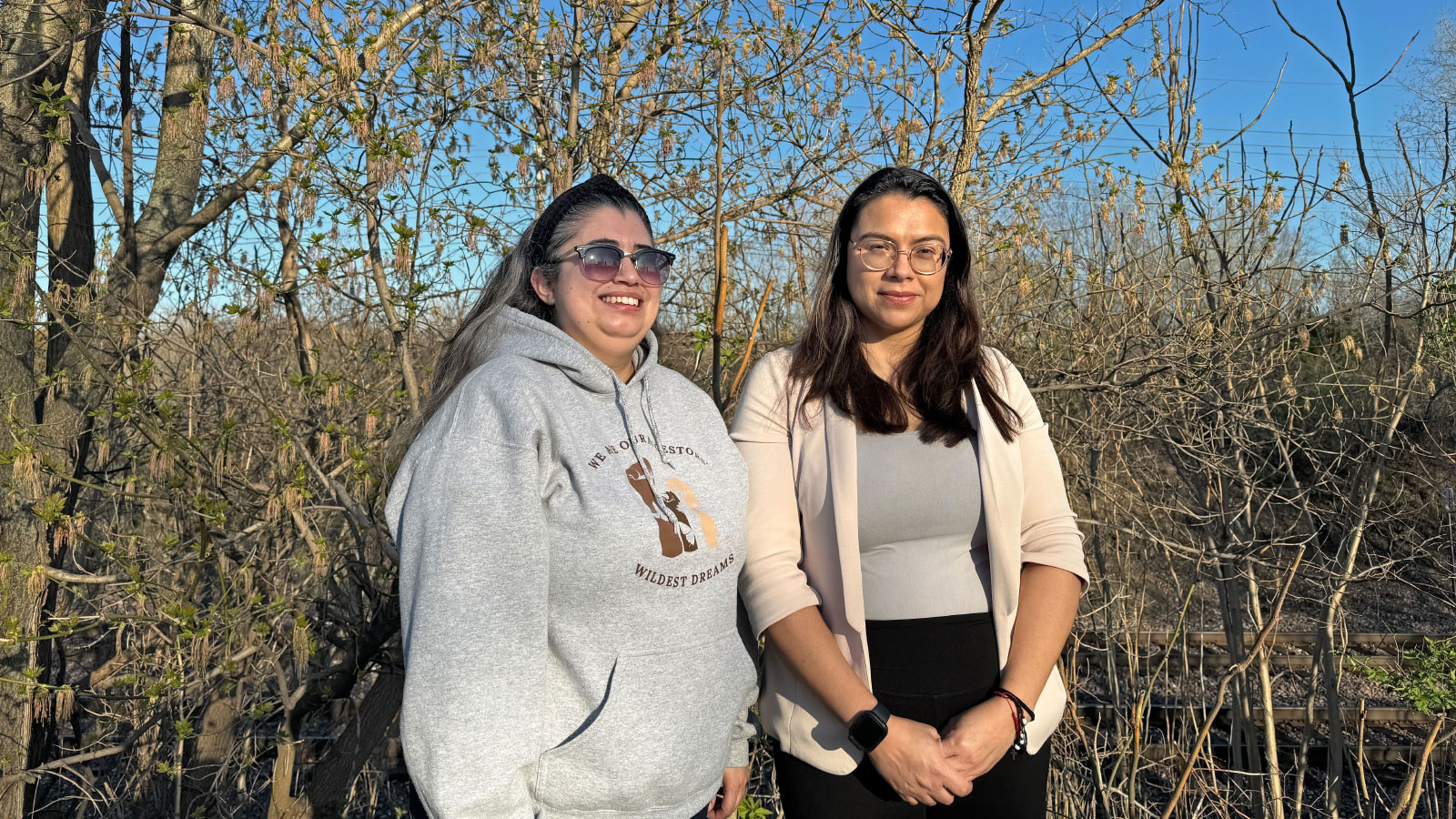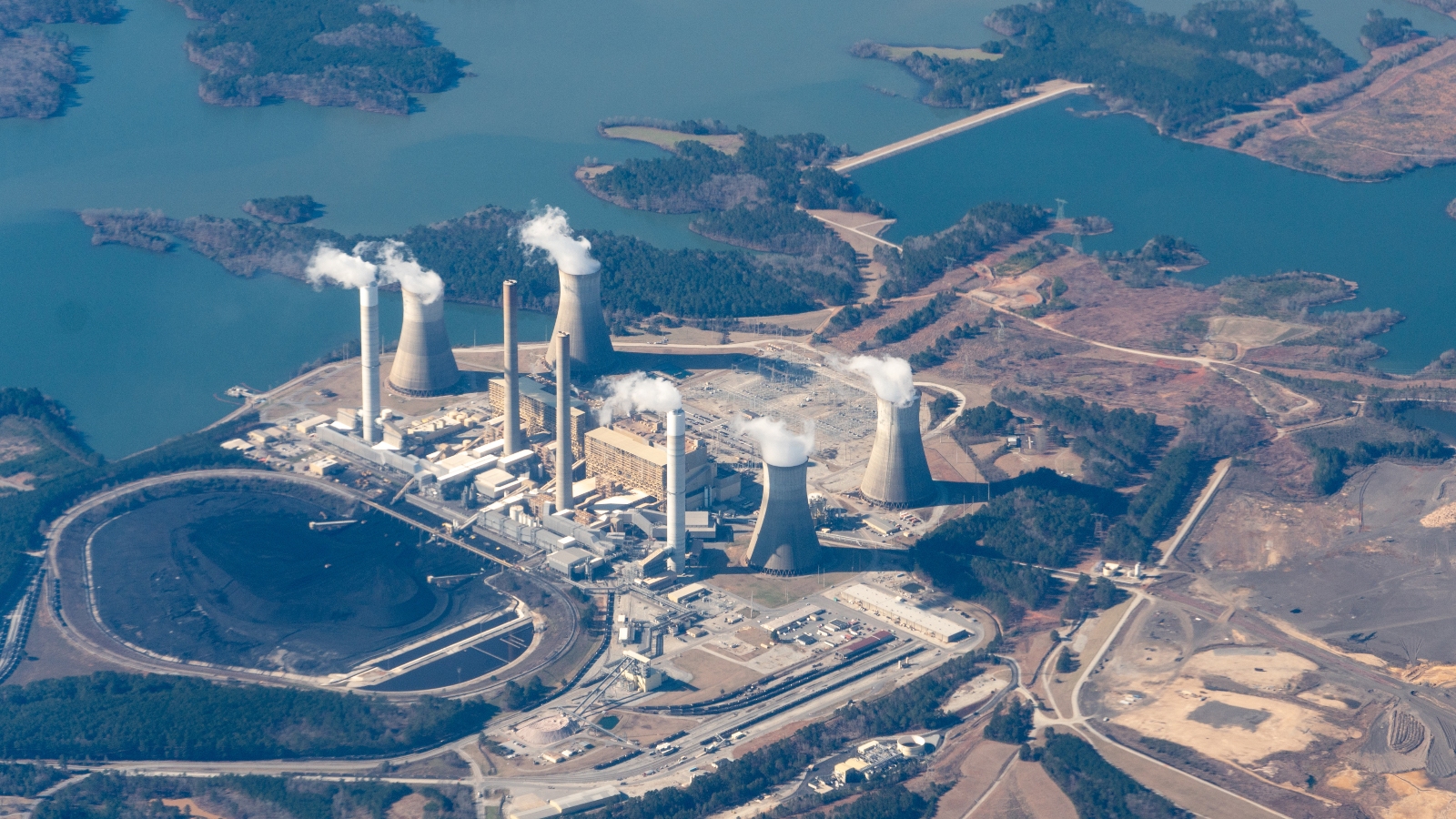Illinois passed a law to clean up coal ash 5 years ago. What’s taking so long?
May 3, 2024
This coverage is made possible through a partnership between WBEZ and Grist, a nonprofit environmental media organization. Sign up for WBEZ newsletters to get local news you can trust.
Celeste Flores can tell you the good news about living in Waukegan, Illinois: The air is safer to breathe now.
“Thankfully, we are no longer breathing coal being burned,” said Flores, a co-chair of Clean Power Lake County, or CPLC, an environmental justice organization serving the mostly Latino suburb about 40 miles north of Chicago. The explanation behind that is simple: The Waukegan Generating Station near the shore of Lake Michigan closed in 2022 after decades of pumping greenhouse gases into the atmosphere and coal ash into the ground.
Flores can also tell you the bad news: The toxic coal ash is still there, dangerously close to the groundwater.
But the explanation behind why the pollution remains in the ground is more complicated than shutting a plant down.
Coal ash is a cocktail of hazardous pollutants leftover from coal combustion. Across the country, plant operators dumped that heavy metal-laden sludge into holes in the ground, sometimes called ponds or impoundments. Sometimes these ponds are lined, and sometimes they aren’t. None of the ponds in Waukegan that are lined meet current state and federal standards.
In 2019, the state confirmed what advocates like Flores had long suspected: that coal ash had leached into nearby groundwater. Worse yet, the coal ash was stored right near Lake Michigan.
That same year, Flores helped push Illinois lawmakers to pass landmark coal ash regulation, which compelled managers of coal ash owners to submit plans to either clean up their operations or shut down.
About three years ago the Illinois Environmental Protection Agency (IEPA) finalized exactly how operators had to submit these proposals. But plans are on hold for securing the three coal ash storage pits in Waukegan. The IEPA hasn’t finalized permits for those sites, so they continue to threaten groundwater.
“When it comes to the implementation of these rules, it’s 2024 and we don’t have permits yet,” said Flores. “And I don’t think anyone was expecting that.”

Juanpablo Ramirez-Franco / Grist
Illinois set itself apart from the majority of the country when it finalized its coal ash rules back in 2021. Most states, save for a handful like North Carolina and Michigan, relied on 2015 federal guidelines designed to monitor and clean up only some coal ash residuals.
For years, the federal rule excluded inactive coal ash ponds and landfills from oversight. An analysis by Earthjustice found that the 2015 rules grandfathered in over 300 of these sites across 48 states. Illinois’ more protective mandate, however, brought them into the state’s regulatory orbit.
Even so, advocates say the forthcoming permits are dragging.
“The Illinois EPA has been reviewing these proposed permits for almost two years,” said Andrew Rehn, the director of climate policy at Prairie Rivers Network in Champaign. “And that’s, like, a long time for these permits to sit and just be under review.”
The Illinois EPA is currently reviewing 44 separate coal ash surface impoundment permit applications for 25 current or former power plant sites across the state. Earlier this month, two and a half years since the first permit applications were submitted, the agency issued its first two draft permits.
The agency said in a statement to Grist and WBEZ that, “due to the complexity of the information required in the applications, in most cases [the] Illinois EPA has requested additional information or clarification from the applicants.” The statement went on to say that it can take weeks to months to “gather additional information or to analyze groundwater modeling data.”
Coal power plants have sought to make exceptions for their permits and have effectively stalled the permit process until the Illinois Pollution Control Board is able to resolve the requests. According to the IEPA, this is the major holdup with the Waukegan permits.
Meanwhile, new federal regulations issued last week give the nation’s fleet of coal power plants and new natural gas plants an ultimatum: adapt or shut down. The power plants have eight years to come up with a plan to capture 90 percent of their greenhouse gas emissions or commit to closing by 2039.
Advocates with the Waukegan group see this long awaited move as a step closer to phasing out coal for good. Although the coal business is in decline, it still has an outsized role in driving climate change and polluting surrounding communities. More than half of the country’s carbon dioxide emissions from electric power generation are attributable to burning coal, according to the U.S. Energy Information Administration.
Almost every coal power plant operator in the country is now staring down the same finish line in 2039. Included in the new rule are stricter safeguards for the coal ash pollution those plants will leave behind in the meantime.
“With the 2015 rules, there was a circle of ponds and landfills that were subject to regulation,” said Megan Wachspress, a staff attorney with the Sierra Club. “That circle of ponds and landfills and other dump sites just got bigger.”
Inactive coal ash ponds and landfills are now part of the family of coal ash dumps that the federal government demands operators monitor and clean up when they threaten water resources.
If it was just a coal plant in Waukegan, Flores said, her organization’s fight might be more manageable. “But there’s so many other things.”
There are five Superfund sites scattered in and around the north shore suburb. These are abandoned lots so contaminated with hazardous materials that the federal government has taken over cleanup. Pointing in several directions, Flores said there are Superfund sites immediately north, south, and west of the old coal plant.
And that means generations of Waukegan residents have had to struggle with medical problems and even premature death because of their toxic environment.
There’s no question for Flores about what comes next: The coal ash must be removed from the ground. But to do that, state and federal agencies need to pick up the pace.
“It’s about making sure that we know that we’re leaving behind a community that’s healthier than what we received,” Flores said.
This story was originally published by Grist with the headline Illinois passed a law to clean up coal ash 5 years ago. What’s taking so long? on May 3, 2024.
